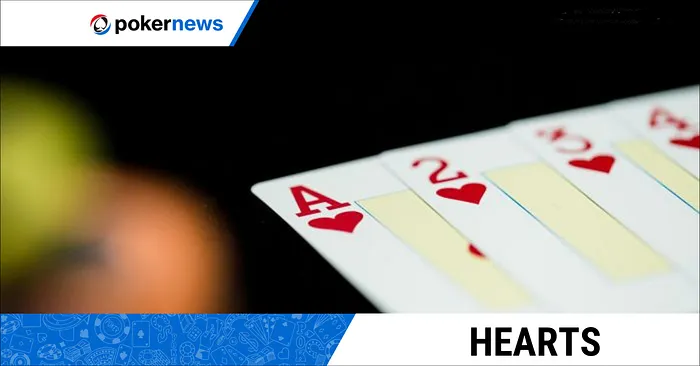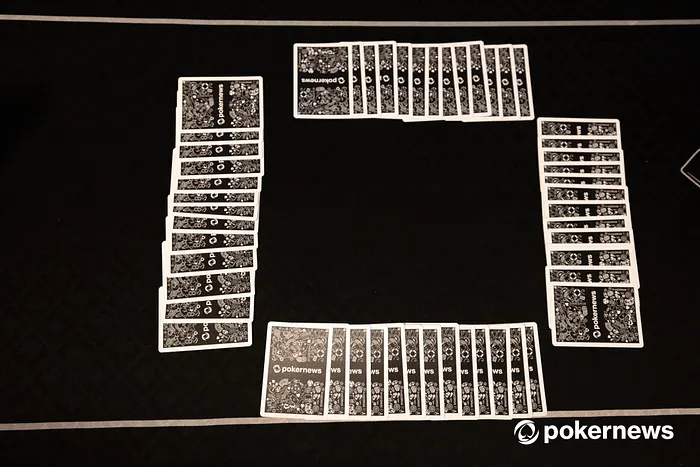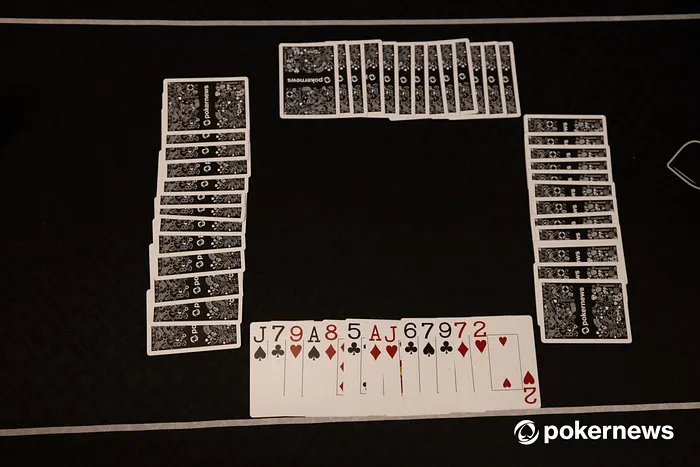An Introduction to Hearts

This article aims to provide a comprehensive guide on how to play Hearts, covering the game's fundamental rules, strategies, and key tactics. From understanding card values to the art of "shooting the moon," this guide intends to equip beginners with the knowledge needed to enjoy and excel at Hearts.
Whether you're a novice seeking to grasp the basics or looking to enhance your skills, this article aims to be a valuable resource for diving into the world of Hearts. Here is your definitive guide on how to play the card game Hearts.
The History of Hearts
Hearts' origins trace back to the 19th century, believed to have evolved from older trick-taking card games. Its exact inception remains nebulous, but the game gained prominence in the United States during the 20th century.
Some historical references suggest Hearts' inclusion in Microsoft Windows operating systems from the 1990s contributed significantly to its popularity, introducing the game to a broader audience. However, its existence predates this digital era, being enjoyed in social circles and gambling environments.
While concrete historical documentation is scarce, Hearts' enduring appeal across cultures and generations attests to its staying power. It's often played as a casual social activity, a family pastime, or in competitive circles, each setting lending its unique charm to the game.
Hearts' simplicity in rules and the intrigue of its strategy have made it a beloved classic, standing the test of time. Its evolution from traditional card games to digital platforms demonstrates its adaptability and enduring allure, making Hearts a timeless favorite among card enthusiasts worldwide.
Setting Up the Hearts Game
Required Equipment: The Hearts card game requires a standard 52-card deck without Jokers.
Number of Players and Card Distribution: Typically, Hearts is played by four players. The entire deck is dealt, giving each player 13 cards. Variations might occur if fewer than four players are involved, adjusting the card distribution accordingly.

Any Variations in Rules: While the standard Hearts game involves dealing all 52 cards, variations can adapt to different player counts. In some cases, with three players, a smaller deck might be used, omitting certain cards or modifying the dealing process.
Dealing Cards: Starting from the dealer's left, cards are dealt one at a time clockwise until each player has 13 cards.
Card Passing: Before the game starts, players choose and pass three cards to another player, ensuring all cards are exchanged before the first trick.
Setting up a Hearts game involves understanding the player count, dealing cards accordingly, and adhering to any specific variations in the rules. With the deck prepared and cards distributed, players are ready to commence this engaging and strategic card game.

The Objective of Hearts
In Hearts, the primary goal is to avoid accumulating points throughout the game. Players strive to evade capturing specific cards, namely hearts and the Queen of Spades, as they carry point values detrimental to your score.
Scoring: Each heart card acquired during tricks counts for one point, while the Queen of Spades, known as the "Black Lady," adds a hefty 13 points to your tally. The objective is to minimize point accumulation, ideally aiming for the lowest score possible. In some Hearts variations, picture cards and the Ace of Hearts is worth more points, while numerical Hearts are still worth 1 point. For instance, J♥= 2 points, Q♥= 3 points, A♥= 5 points etc.
To succeed in Hearts, strategic card play is crucial. Players must maneuver their hands skillfully, avoid certain cards, and at times, employ daring strategies to shift the burden of points onto opponents. The ultimate objective lies in finishing the game with the fewest points, ensuring a victory in this engaging and tactical card game.
Card Ranking in Hearts
Hierarchy of Cards: Understanding the card hierarchy is pivotal in Hearts. In this game, the ranking order is traditional, following the standard deck values. The cards rank from Ace, the highest, to 2, the lowest, in their respective suits. However, during trick-taking, the ranking hierarchy slightly differs.
During Tricks: Players must follow suit if possible, playing a card in the lead suit. If a player doesn't hold cards from the lead suit, they can opt to play any card, including hearts, despite them being undesirable.
Special Rules: The Queen of Spades holds particular significance. Known as the "Black Lady," it's a high-value card, carrying 13 points. Players usually avoid winning tricks containing this card, aiming to pass it on or play it strategically to their advantage.
Hearts Gameplay Rules
How a Round is Played: In Hearts, each round involves players attempting to avoid certain cards while trying to win tricks. Players follow suit if possible; otherwise, they may play any card. The highest-ranking card of the suit led wins the trick unless a heart or the Queen of Spades is played, leading to specific outcomes.
Passing Cards and Strategy: Before a round starts, players pass three cards to an opponent, aiming to discard undesirable cards or strategically set up opponents for point collection. Passing strategies often revolve around avoiding high-value cards while ensuring opponents receive them. However, another strategy is to try to pass cards of the same suit so you have no cards left for that suit. That then allows you to play any card, such as the Q♠ or high-value Hearts, if and when that suit is played.
Shooting the Moon: An advanced Hearts strategy involves "shooting the moon," where a player aims to collect all hearts and the Queen of Spades in a single round. This daring move results in all other players accumulating 26 points, while the daring player earns zero for that round.
Hearts' gameplay rules encourage strategic thinking, calculated risk-taking, and astute card management. While avoiding point cards is crucial, exploiting opportunities to pass undesirable cards or attempt to "shoot the moon" adds layers of complexity and excitement to this timeless card game. Understanding these gameplay rules equips players to navigate the nuances of Hearts and enjoy its engaging strategy.
Scoring System in Hearts
Detailed Explanation of Scoring: In Hearts, the objective is to avoid collecting heart cards and the Queen of Spades, as they incur points detrimental to your score. Each heart card captured during tricks accumulates one point, while the Queen of Spades, the "Black Lady," carries a substantial 13 points. Players aim to minimize point acquisition to secure victory.
Common Variations in Scoring: While the standard scoring system involves accumulating points, variations exist. Some play with a different approach, aiming for the fewest points. The player with the lowest score or the first to reach a predetermined score limit wins. Variations might also include penalties for "shooting the moon" unsuccessfully or awarding bonus points for achieving it.
Understanding the scoring system is fundamental in Hearts. Whether adhering to standard scoring or exploring variations, the central objective remains: managing card play to avoid collecting hearts and the Queen of Spades. This strategic aspect forms the core of gameplay, offering players various approaches to victory while navigating the challenge of minimizing point acquisition.
Variations of Hearts
Highlighting Popular Variations: While the core rules of Hearts remain consistent, variations exist, offering diverse gameplay experiences. Some popular variations include:
Passing Cards: Variants might alter the number of cards passed or the direction of passing.
Scoring Methods: Some variations employ different scoring methods, encouraging players to aim for the lowest score or implementing penalties for certain actions.
Number of Players: Hearts can adapt to different player counts, adjusting card distributions and gameplay dynamics accordingly.
Unique Rules in Different Versions: Certain variations introduce unique rules to spice up the game. For instance, some may award bonus points for specific card combinations or penalize unsuccessful attempts at "shooting the moon." Variations also arise in online and digital versions, offering creative features or adaptations to suit various preferences.
Exploring the variations of Hearts can add excitement and depth to the game. Whether adapting rules for different player counts, experimenting with scoring methods, or incorporating unique elements, these variations provide players with opportunities to tailor their Hearts experience to suit their preferences and playstyles.
Hearts, a classic card game blending strategy and social interaction, offers a captivating experience for players of all skill levels. Remember, the objective is to minimize points by avoiding hearts and the Queen of Spades while strategizing to outwit opponents.
Recapitulating key points: Understand card rankings, employ passing strategies, and consider daring moves like "shooting the moon." Embrace the nuances of gameplay and scoring, exploring variations to tailor your Hearts experience.
Let Hearts be an avenue for fun and intellectual challenge. Engage with friends, family, or online communities to enjoy this timeless game. Embrace the thrill of card play, hone your strategies, and revel in the dynamic world of Hearts, where each move shapes your path to victory.
Frequently Asked Questions (FAQs):
Is Hearts a trick-taking game?
Yes, Hearts is indeed a trick-taking game. Players strive to win tricks by playing the highest-ranking card of the led suit or, if unable, by playing any card, trying to avoid capturing certain cards that carry points.
How many players can participate in a game of Hearts?
Typically, Hearts is played by four players. However, variations exist that can adapt the game for three or even two players, adjusting the number of cards dealt accordingly.
What is shooting the moon in Hearts?
"Shooting the moon" in Hearts is a daring strategy where a player aims to collect all hearts and the Queen of Spades in a single round. If successful, this player earns zero points for that round, while all opponents accumulate 26 points.
Can you play Hearts online?
Absolutely! Hearts can be played online on various platforms and gaming websites, allowing players to enjoy the game against opponents worldwide or with friends and family remotely.
Are there different variations of Hearts?
Yes, there are several variations of Hearts. These variations might involve changes in passing rules, scoring methods, or adaptations for different player counts, providing diverse gameplay experiences for enthusiasts.
